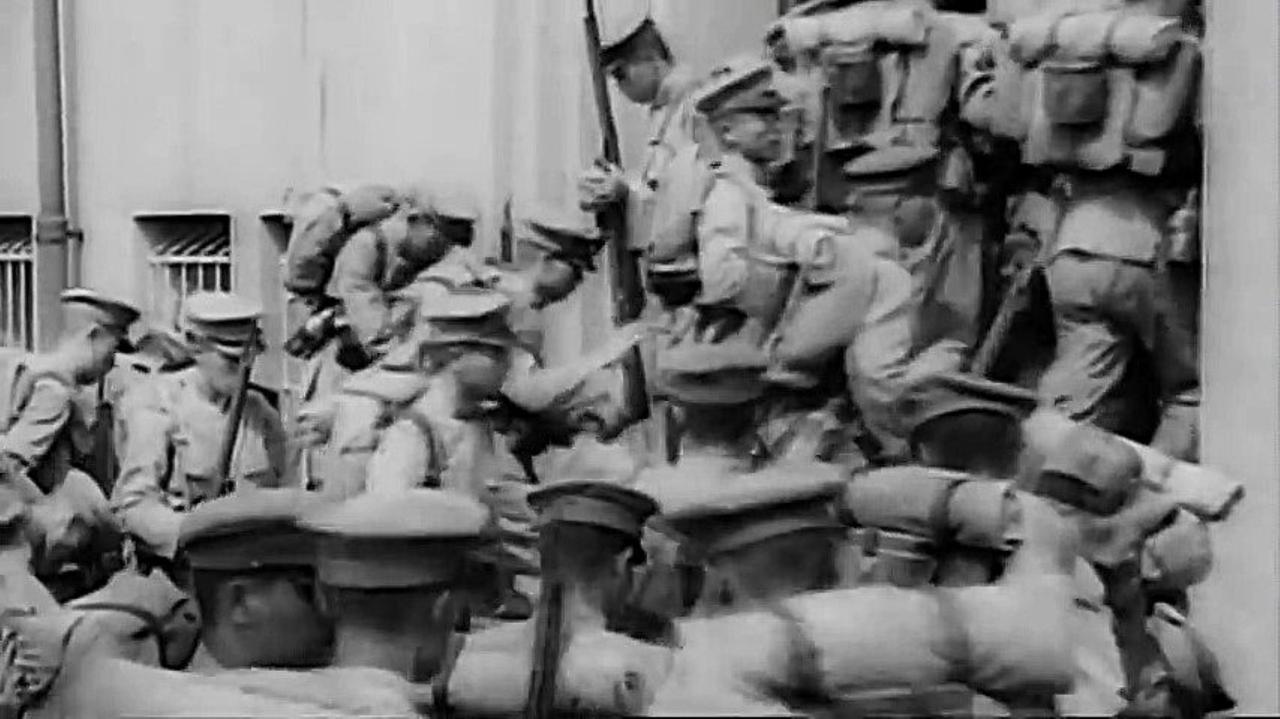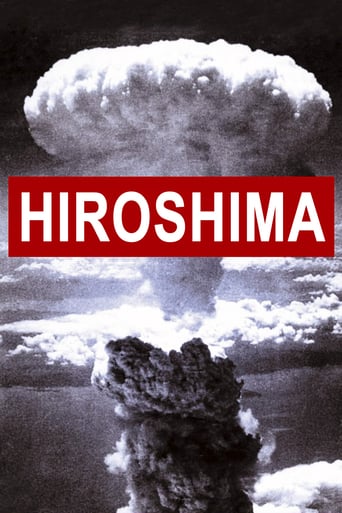

I had very recently picked up a lot of interest in the Indo-Pak history of wars and after extensive reading about them I turned to the two world wars. I really wanted to know the kind of horror the people of Japan went through on those days. I first came across this documentary film in 2008 or so on a forum, but those were just short clips available on YouTube. So I decided to find its full version.I got done with it just an hour ago and I am still get over it. I can still feel the impact of what I have watched. A brilliant initiative by the BBC one must admit. Greatly detailed to the extent of almost making one cry hearing the accounts of the survivors. The most horrible being the woman who had to let her daughter die and the "creature" that the doctor saw on his way back to Hiroshima.This documentary film deserves full marks not only for the way the pain, suffering and horror is depicted but also for being quite impartial - we should remember that the film ends with this question being posed and with that Japanese doctor implying that it wasn't needed.All in all, I pray to the Almighty that no people on the face of earth are made to go through anything even remotely similar to this again. May the world be protected from wars in general. Although it may years to complete and I know I am waiting for something years and years away, I am eagerly waiting for my favourite film- maker James Cameron to complete and release his film on the nuclear bombings of Japan. That man knows the secret to making masterpieces and I can confirm that it will be a once in a lifetime affair. Here I wait.......
... View MoreHiroshima: BBC History of World War II is a documentary about the atomic bomb drop on Hiroshima during World War II. What is great about this particular documentary is that it tells the story through both sides, including eye witness testimonies of the Americans and the Japanese. The documentary is told in sequential order, starting with what was going on before the bomb dropping, the events that led up to it, followed by the immediate outcome and the future outcome. It begins by showing how the Americans tested the bomb and were triumphant, and it tells through an eye witness account President Truman's reaction to this. He gave Japan the choice to surrender, but Japan refused. The lead up to the bomb dropping was very interesting when looked at through both perspectives (the Americans and the Japanese) because while America was confident in their imminent victory after their success in creating the bomb, Japan was still preparing for an all- out invasion. After the atomic bomb was created, tested, and proved ready to use successfully, the documentary gives us insight into the minds of the chosen crew who were to man the planes that were to drop the bomb on Hiroshima. At the same time that these men were preparing to drop the "bomb to end the war", Japan was continuing to prepare for an invasion, not knowing what was to come. There were a few selected stories told by the people who actually lived through the bomb dropping about what their lives were like, and what the day was like before it occurred. All of them said that the only thing they can really remember about that day before it happened was that it was one of the most beautiful days. As the Japanese began their day just like any other, three American planes flew closer and closer to their destination. The documentary continues on by showing pictures and footage of the bombing afterwards. The same people who were describing perfect skies and perfect days began to tell a story about sadness and death. The entire documentary in itself is very sad, but the most disheartening part is being shown the pictures of the aftermath and the affects it had on people during that time. America cheered greatly for their victory, but Japan mourned heavily for their loss. Something interesting is that they interviewed actual people who were alive during this time to witness the horrific event. They took views from both the Americans who were responsible for dropping the bomb, and the Japanese who were unlucky enough to experience the impact. I feel this brings a sense of actuality to something that seems like a dream when compared to the pictures of present-day Hiroshima. It is one thing to read about the facts in a history book, but to look at the faces of those who lived while their loved- ones perished is very sobering to see. This documentary is a meaningful and powerful way to describe the attack on Hiroshima through both sides of the assault. The only negative aspect I can think of is that, while doing the reenactments of certain events that took place, the Japanese reenactments were completely in Japanese with no American subtitles so it was difficult to follow at those certain times. Other than that, an amazing documentary that should not be avoided.
... View MoreThere was a comment in this film about the compassion and the Japanese. I realize that many people died in the two blasts and that many died subsequently. In all of my readings I have never seen any instance of Japanese compassion. It is though the nation was born without it. I have viewed the Japanese people of that time as automatons to their Emporer, willing to die but not live. I am slightly older than the use of these two bombs and nothing will convince me that millions of Japanese would have been enlisted to fight any invasion, including school girls. The leaders of Japan seemed to view their citizens as fodder. We can imagine the reaction around the world if Truman had not used these bombs. He would have been castigated. I thought the puny power of these bombs compared to today's H-bombs should have been mentioned. Now the circle of death reaches out over 20 miles.
... View MoreBeing once a former History student, history-relating subjects are often of interest to me. Especially if it's something which I had learnt in my past History classes. The fall of Japan in WWII was one of those things I learnt.Imagine my surprise when I saw this on air here last year. Given it was also a good time to refresh somehow some of the events I had learnt from my History textbook, this show viewed the atomic bomb dropping on Hiroshima through the eyes of those who had survived to tell their story. Whatever I had understood in the History class was through the events in the textbook, this is more raw and humane for a change.It's always scary to understand about the after-effects of the atomic bomb that often it's only those who experienced, and survived to tell the tale, will give a very different perspective. Even more terrifying, hearing from the survivors themselves. Yeah, often it's being discussed normally close to the WWII's anniversary that whether it is justified to drop the atomic bombs on Hiroshima and Nagasaki to finally force Japan to end WWII in the Pacific region, but then, this is still a topic which is very touchy even till now.Given I also remembered my father once went to Japan for business for some time and he did went to the memorial centre in Hiroshima and when he brought back the brochure, I almost felt sick. At the contents, that is. When it showed the images and the graphics in the brochure, I cannot really bear to see it after one look.Often, the horrors of war remains in those who had went through it. It's always never nice.If you are one of those who want to know how the whole thing went before WWII finally ended in the Pacific, this is recommended.
... View More